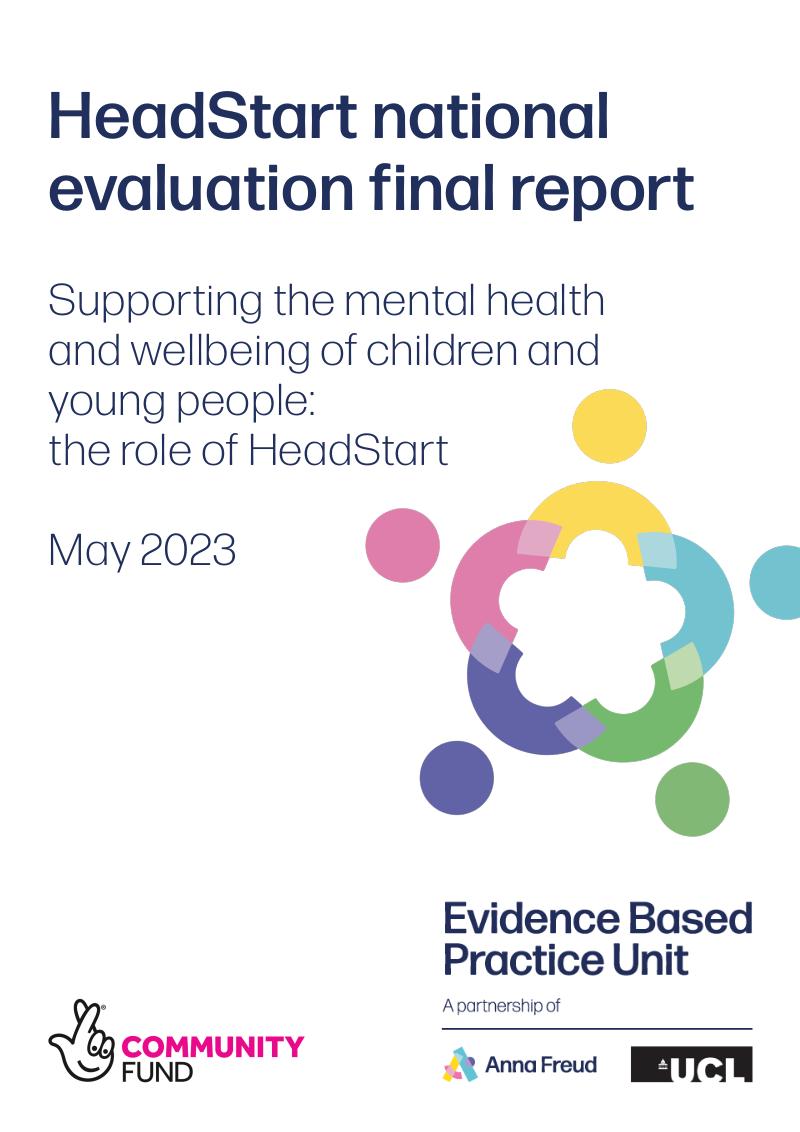The HeadStart Learning Programme
The Evidence Based Practice Unit leads the national evaluation of HeadStart. Together with our partners, we evaluate and share learning from the HeadStart programme.
What is HeadStart?
Started in 2016, HeadStart was a six-year, £67.4 million National Lottery funded programme set up by The National Lottery Community Fund. It aimed to explore and test new ways to improve the mental health and wellbeing of young people aged 10–16 and prevent serious mental health issues from developing. To do this, six local-authority-led HeadStart partnerships worked with local young people, schools, families, charities, community and public services to design and try out new interventions aiming to promote young people’s mental health, wellbeing and resilience. The six HeadStart partnerships were based in Blackpool, Cornwall, Hull, Kent, Newham and Wolverhampton.
As a test and learn programme HeadStart ended in July 2022, with many of the approaches having been sustained and embedded locally. We will complete the national evaluation of HeadStart by mid-2023.
The HeadStart Learning Team
The Evidence Based Practice Unit has been working with The National Lottery Community Fund and the HeadStart partnerships to collect and evaluate evidence about what does and does not work locally to benefit young people, now and in the future. Partners working with the Evidence Based Practice Unit on this evaluation included the University of Manchester and the Child Outcomes Research Consortium. This collaboration was called the HeadStart Learning Team. Previous partners in the HeadStart Learning Team include the London School of Economics (LSE) and Common Room.
The HeadStart Learning Team used a mixture of questionnaire and interview methods. Young people completed questionnaires every year to help track changes in their feelings and behaviour over time. Professionals provided information regularly about the support that was offered as part of HeadStart. Professionals and young people took part in annual interviews to explore challenges and opportunities around delivery and to explore what young people found helpful.
Together with colleagues from The National Lottery Community Fund, the HeadStart Learning Team developed the Wellbeing Measurement Framework (WMF), a suite of measurement booklets for primary school, secondary school and college students. Each WMF is a comprehensive and practical package of validated measures that are designed to assess a range of mental health indices, including positive wellbeing, behavioural or emotional difficulties and the presence and strength of protective factors.
Chief investigator: Professor Jess Deighton
-
HeadStart national evaluation final report - May 2023
Download reportSupporting the mental health and wellbeing of children and young people: the role of HeadStart.
-
Case study 1 - Using surveys to measure wellbeing in schools: How to get a good response rate
Download reportHeadStart areas have been successful in collecting a huge volume of data about student wellbeing using questionnaires. This is key to our aim to build evidence about what works and what doesn’t, and to share learning to benefit young people in future. Achieving this is no mean feat. This case study shares our learning about how to get a good response rate when using surveys to measure wellbeing in schools.
